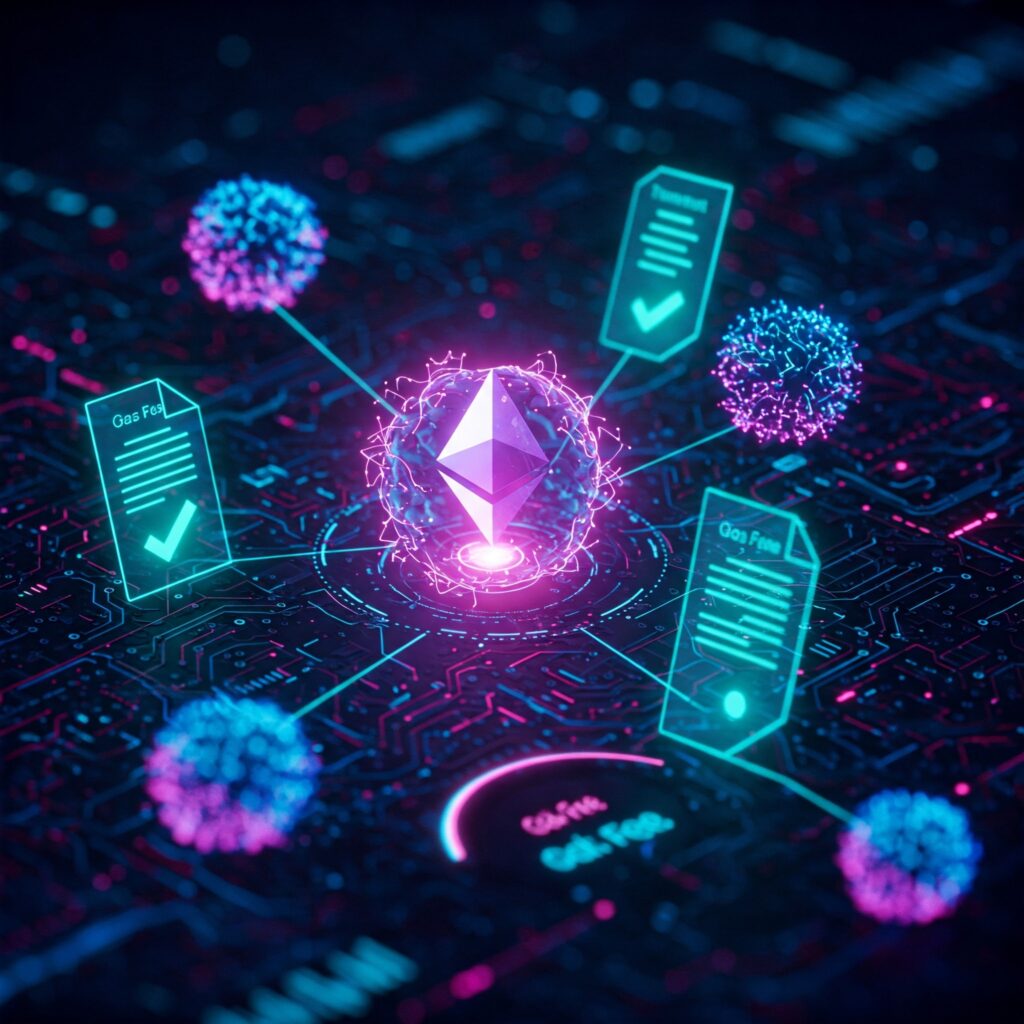What is Ethereum? Understanding Smart Contracts, Gas Fees, and the Ethereum Network

Introduction
Ethereum is one of the most popular and widely used blockchain platforms. It goes beyond Bitcoin by enabling developers to create decentralized applications (DApps) and execute smart contracts. Whether you are new to cryptocurrency or an investor looking to understand Ethereum better, this guide will break everything down in simple terms.
In this article, you will learn what Ethereum is, how it works, and why it is important. We will also discuss smart contracts, gas fees, and the overall impact of the Ethereum network.

Understanding Ethereum
What is Ethereum?
Ethereum is a decentralized, open-source blockchain that allows developers to build and deploy smart contracts and DApps. It was proposed by Vitalik Buterin in 2013 and launched in 2015. Unlike Bitcoin, which focuses on peer-to-peer transactions, Ethereum provides a platform for programmable contracts and applications.
Importance of Ethereum
- Enables decentralized applications (DApps) with no central authority.
- Provides smart contract functionality, automating transactions without intermediaries.
- Supports various projects in DeFi (Decentralized Finance), NFTs, and gaming.
- Allows innovation through its robust Ethereum Virtual Machine (EVM).
Key Benefits of Ethereum
1. Smart Contracts
Smart contracts are self-executing contracts with predefined rules. They ensure trustless transactions, reducing fraud and inefficiency.
2. Decentralization
Ethereum operates on a decentralized network, removing the need for banks, governments, or third-party intermediaries.
3. Security and Transparency
Transactions on Ethereum are immutable and publicly verifiable, reducing the risk of fraud and manipulation.
4. High Utility in DeFi & NFTs
Ethereum is widely used in DeFi platforms for lending, borrowing, and yield farming. It also powers NFTs, allowing artists and creators to tokenize digital assets.
How to Use Ethereum – Step-by-Step Guide
- Get a Crypto Wallet
- Use wallets like MetaMask, Trust Wallet, or Ledger to store ETH securely.
- Buy Ethereum
- Purchase ETH from exchanges like Binance, Coinbase, or Kraken.
- Use Smart Contracts
- Engage with DeFi apps or NFT marketplaces using Ethereum’s smart contracts.
- Pay Gas Fees
- Ethereum transactions require gas fees, which fluctuate based on network congestion.
Common Challenges and Solutions
High Gas Fees
- Solution: Use Layer 2 solutions like Arbitrum, Optimism, or Polygon to reduce costs.
Network Congestion
- Solution: Choose times with lower traffic or use alternative blockchains.
Security Risks
- Solution: Always verify smart contracts and avoid suspicious projects.
Future Trends in Ethereum
- Ethereum 2.0 Upgrade
- Transitioning from Proof-of-Work (PoW) to Proof-of-Stake (PoS) for better scalability.
- Expansion of DeFi and NFTs
- More innovations in decentralized finance and digital asset tokenization.
- Increased Institutional Adoption
- More companies and banks integrating Ethereum-based solutions.
Conclusion & Final Thoughts
Ethereum is more than just a cryptocurrency; it is a foundation for decentralized applications and smart contracts. As the network evolves with Ethereum 2.0, it will continue to play a crucial role in blockchain technology.
Are you excited about Ethereum’s future? Share your thoughts in the comments below!
FAQ Section
- What makes Ethereum different from Bitcoin?
- Ethereum allows smart contracts and decentralized applications, while Bitcoin is mainly for transactions.
- What are gas fees?
- Gas fees are transaction costs paid to Ethereum miners to process transactions.
- How do I buy Ethereum?
- You can buy ETH from crypto exchanges like Binance, Coinbase, or Kraken.
- Is Ethereum a good investment?
- Ethereum has strong use cases and adoption, making it a promising investment.
- What is Ethereum 2.0?
- Ethereum 2.0 is an upgrade that improves scalability and energy efficiency by using Proof-of-Stake.